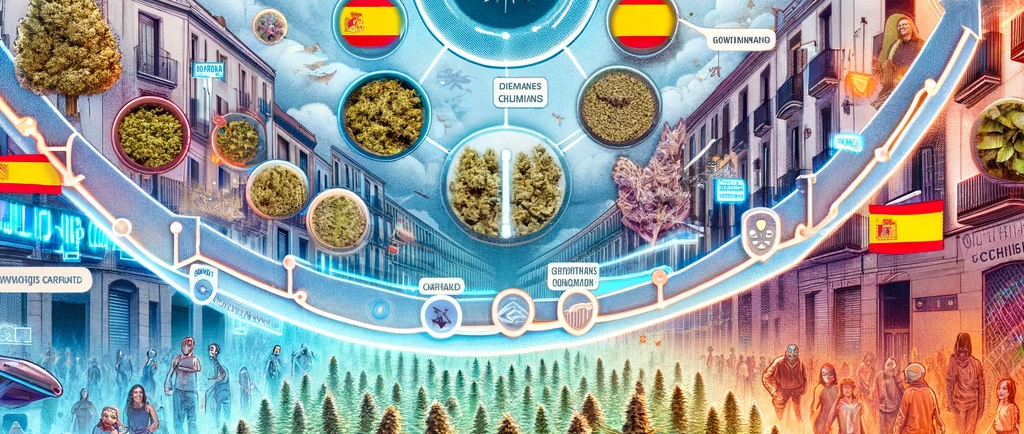The Evolution and Future of Cannabis Social Clubs in Spain
Spain's Cannabis Social Clubs (CSCs) represent a unique and pioneering approach to cannabis consumption and cultivation. These member-based clubs have evolved over time, adapting to changing legal landscapes and societal attitudes. This article explores the evolution of CSCs in Spain, their current state, and the potential future of these distinctive entities in the broader context of cannabis reform.
CANNABIS CLUBS
1/28/20242 min read


The Birth of Cannabis Social Clubs
CSCs in Spain have their roots in the early 2000s, born out of a need to navigate the country's cannabis laws, which decriminalized the private use and cultivation of cannabis but prohibited public consumption and sale. These clubs began as informal, private gatherings and evolved into organized, non-profit associations providing a safe environment for members to cultivate and consume cannabis.
The Role of CSCs in Spanish Society
CSCs have played a significant role in shaping the perception of cannabis in Spain. They have created communities where cannabis use is normalized and destigmatized, providing a space for social interaction, education, and advocacy. These clubs have also become centers for cultural activities, hosting events, and fostering discussions about cannabis-related topics.
Legal Challenges and Adaptations
The legal status of CSCs in Spain is a continuous dance with the country's laws. While operating in a legal grey area, CSCs have faced challenges, including legal crackdowns and varying regional regulations. The clubs have adapted by emphasizing their non-profit nature, strict membership rules, and commitment to responsible consumption.
The Impact on Medical Cannabis Users
One significant aspect of CSCs is their role in providing access to cannabis for medicinal users. In the absence of a formal medical cannabis program, many patients turn to CSCs for their needs. This has put CSCs at the forefront of the medical cannabis debate in Spain, highlighting the need for more comprehensive legal frameworks for medicinal cannabis.
CSCs and Cannabis Tourism
The existence of CSCs has also impacted tourism in Spain. Some regions, particularly Barcelona, have seen a rise in cannabis tourism, where visitors come specifically to experience the cannabis club scene. This phenomenon has sparked debates about the implications for local communities and the need for regulatory measures to manage cannabis tourism.
The Future of CSCs in a Changing Legal Landscape
As discussions about cannabis legalization and regulation gain momentum globally, the future of CSCs in Spain is at a crossroads. There are questions about how these clubs will fit into potential new legal frameworks, whether they will be incorporated into a regulated market, or if they will continue to exist in their current form.
The Role of Technology and Innovation
CSCs have started embracing technology and innovation, from cultivating techniques to membership management. This evolution points to a future where CSCs could become leaders in cannabis cultivation technology and community management.
Cultural Evolution and CSCs
The cultural impact of CSCs extends beyond cannabis consumption. They have influenced art, music, and social dynamics in Spain, contributing to a broader cultural movement that intersects with cannabis. As societal attitudes continue to evolve, CSCs will likely play a pivotal role in shaping these cultural shifts.
Conclusion
Cannabis Social Clubs in Spain are more than just a unique solution to cannabis consumption; they are a reflection of the country's innovative and adaptive approach to cannabis policy. As they navigate legal uncertainties and societal changes, CSCs will continue to be a critical part of the conversation on cannabis in Spain. Looking forward, the evolution of these clubs will offer valuable insights into the potential paths for cannabis legalization and regulation, not just in Spain, but globally.
Check our article about Clubs in Valencia
